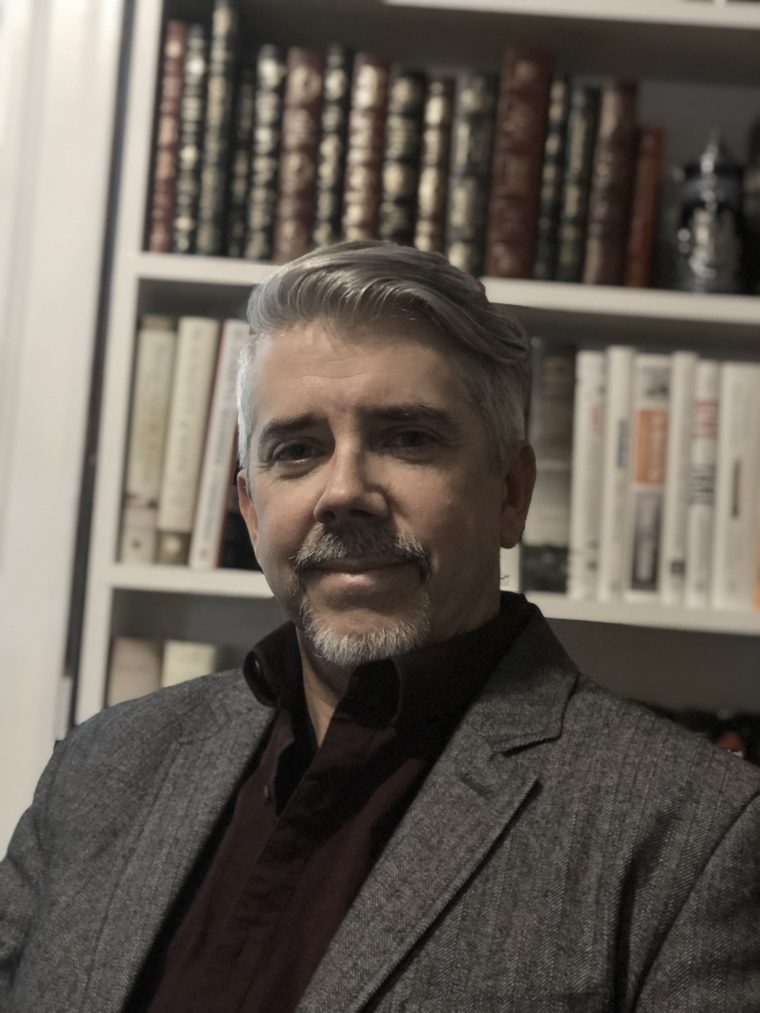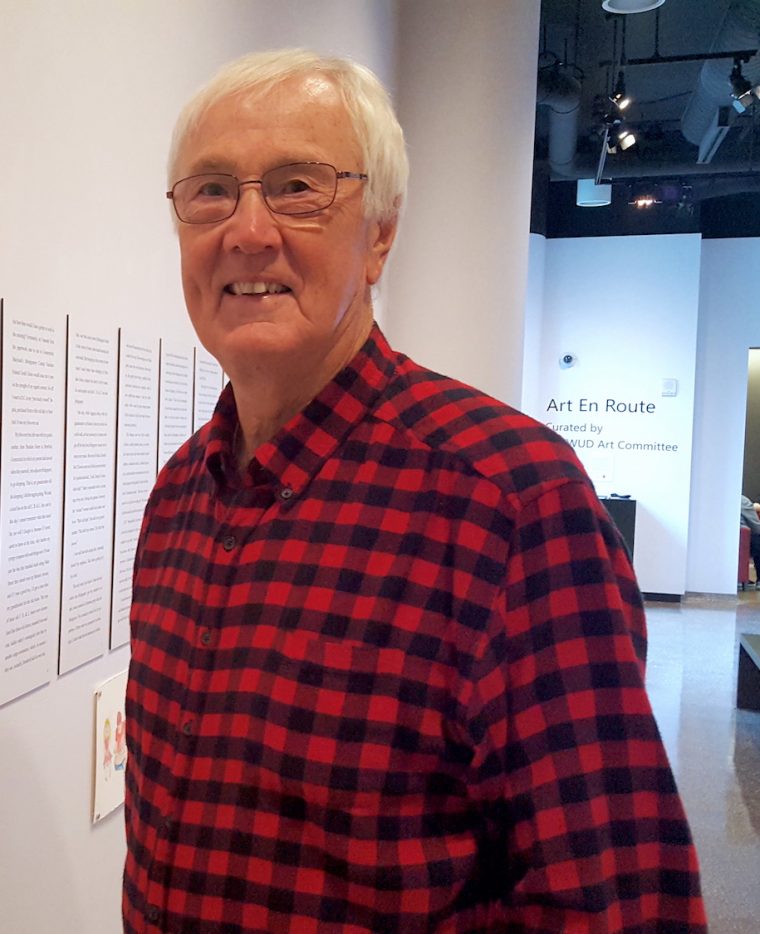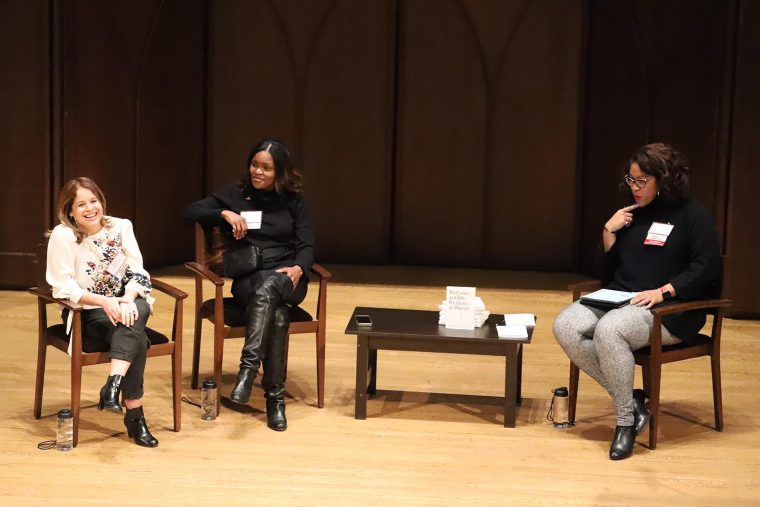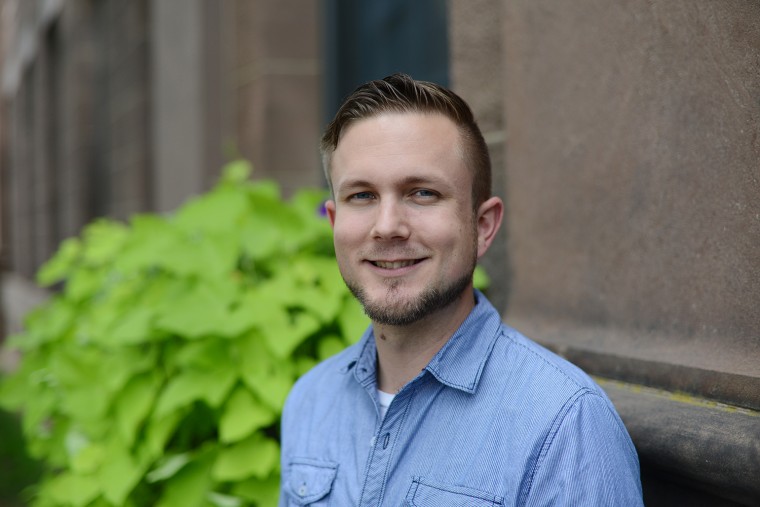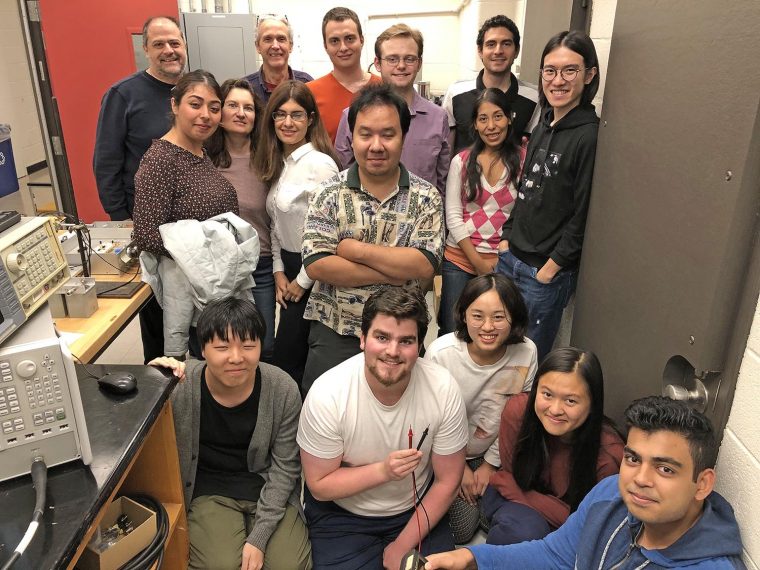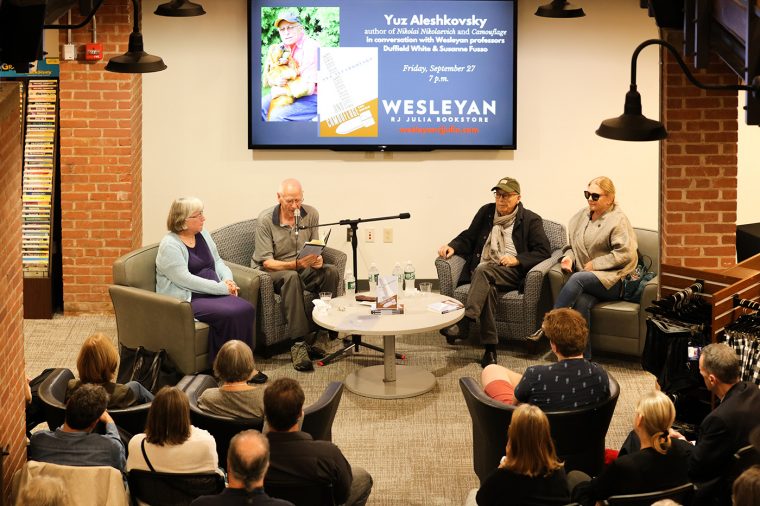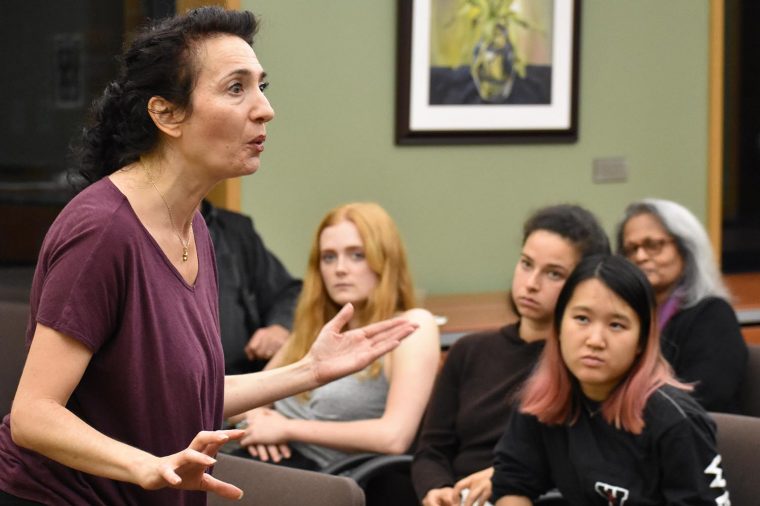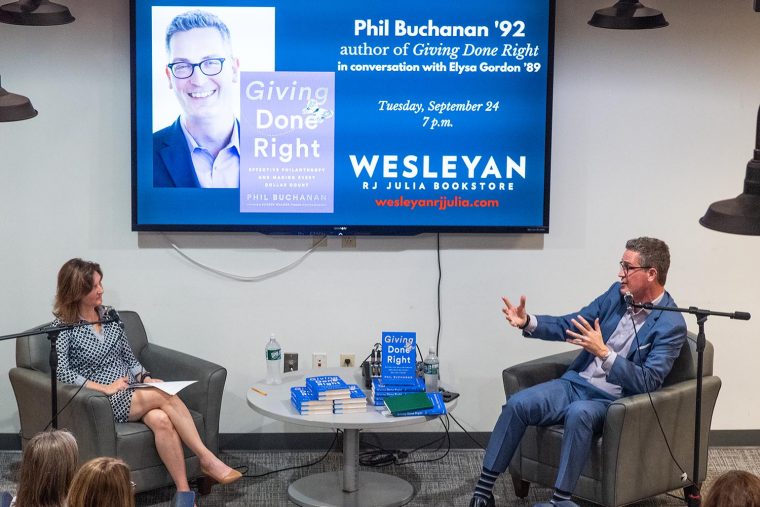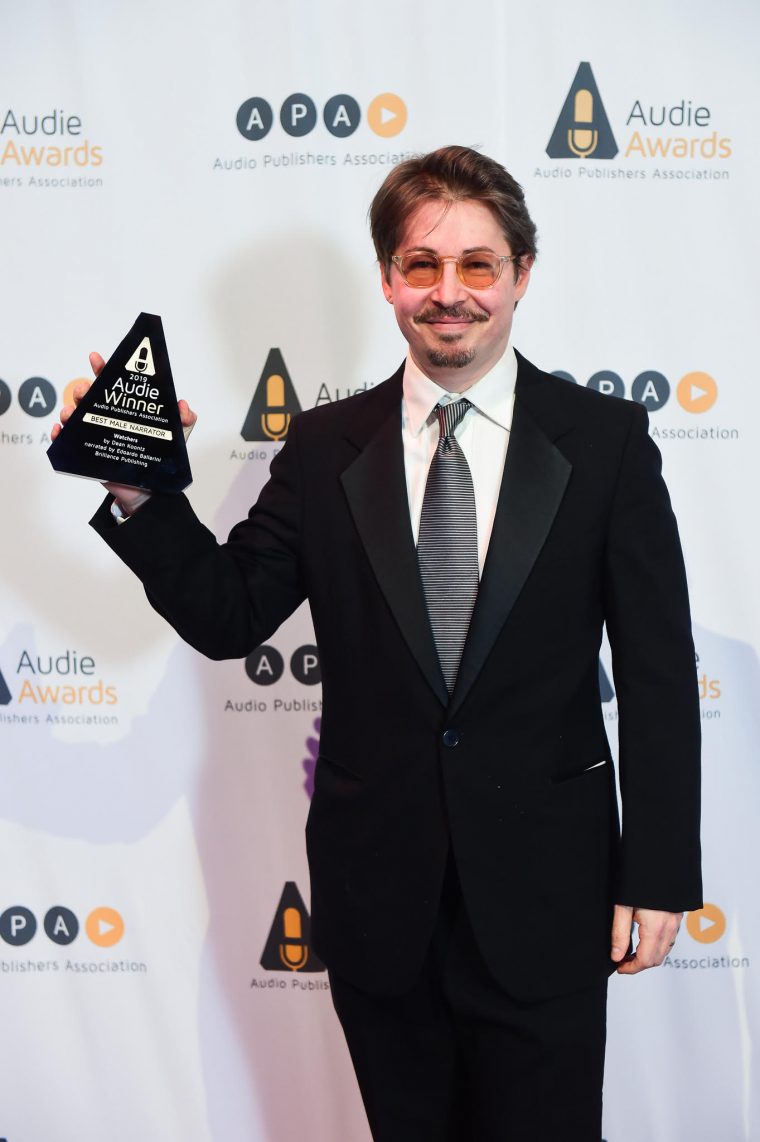As spring semester approached, Avery Kaplan '20 gave her former Bedford [Mass.] High School history teacher, James Sunderland '92, a call to talk about what education means in 2020. Below is an edited portion of their conversation. Avery Kaplan: What do you think Wesleyan aspires to be, and what do you think education in this country aspires to be? James Sunderland: It's always seemed to me that Wesleyan is a place that sincerely wants to be engaged in learning; making an impact in the world in a way that's also humble, listening to people with an open mind, the free…
Along with other musicians around the world this week, Goth Girlfriend (Gaby Giangola '17) posted her "2019 Spotify Wrapped" overview to Instagram. Accompanied by the caption "gotta start somewhere, eh?," the photo summarizes the number of streams and listeners who tuned in to Goth Girlfriend's music on the streaming service this year. The caption encapsulates Goth Girlfriend's tireless ambition. The up-and-coming artist's music is self-described as banshee rap or alternative rock; her sound is raw and meticulous at the same time. The five tracks on her recent EP, Sex Sprain, mix guitar chords and hip-hop beats with punk vocals, and…
Claude Clayton "Bud" Smith '66, professor emeritus of English at Ohio Northern University, is an author who throughout his career has worked behind the scenes to bring Native Siberian creative writing to an English-speaking audience and to promote global indigenous literature. In that spirit, before Smith's story starts, he recommends we tune in to the PBS premiere of N. Scott Momaday: Words From a Bear, on Nov 18. Smith's connection with N. Scott Momaday is personal. In 2016, Smith co-edited and translated Meditations After the Bear Feast, a collection of poems exchanged between Momaday, a Kiowa writer and the defining…
The second publication by students in Genomics Analysis (BIOL 310) has been accepted by the well-known journal G3: Genes, Genomes, Genetics. This adds 26 Wesleyan students to the ranks of more than 40 students who have become published authors through the course's research on Drosophila sechellia, a type of fruit fly evolved to eat a plant that is toxic to most insects. The recent paper, "Genomics Analysis of L-DOPA Exposure in Drosophila sechellia,” is coauthored by all 20 students in Assistant Professor of Biology Joseph Coolon's class, and six students in his lab. "I created my Genomics Analysis course as a…
The Physics Department's Wave-Transport Lab recently received awards totaling $709,000 to support its ongoing aim to understand and manipulate the movement of waves—sound, mechanical, or electromagnetic—through natural or human-made materials. The lab received a $340,000 grant from the National Science Foundation's Division of Civil, Mechanical, and Manufacturing Innovation program titled "Engineering Dynamical Symmetries for Extreme Wave-Matter Interactions in Elastodynamics," and a $369,000 grant from the Department of Defense's Office of Naval Research (ONR) titled "Waveform Shaping Techniques for Targeted Electromagnetic Attacks." The Wave-Transport Lab was established in 2016 when Fred Ellis, chair and professor of physics, and Tsampikos Kottos, the…
(more…)
On Sept. 25, Jennifer Blaine '92 performed The Vicissitudes of Travel in Usdan 108. Hosted by the neuroscience and pre-med students of the MINDS Foundation and the Basal Gang, The Vicissitudes bridges the gap between medical science, mental health, and performance art. In the solo show performed by Blaine and co-written with Karen Getz, Blaine's portrayals of each member of a family comes to life against the sparse set that invites the audience's imagination to fill in the gaps. Terrified by the idea of losing her brother, "Sister" goes on a journey through her brother's brain surgery that blends visual…
(more…)
As campus was winding down for spring break last semester, Professor of Earth and Environmental Sciences Suzanne O’Connell was packing her bags for a two-month expedition in the Scotia Sea, just north of the Antarctic Peninsula, to drill for marine sediment miles below the ocean waves. On her ninth expedition since 1980, O’Connell was one of 30 international scientists working 12 hours a day, seven days a week, navigating “Iceberg Alley” aboard the JOIDES Resolution research vessel. It is the only ship in the world with coring tools powerful enough to extract both soft sediment and hard rock from the…
This year at the 24th annual Audie Awards, held on Feb. 4, Edoardo Ballerini ’92 was named Best Male Narrator for his work on Watchers by Dean Koontz. The awards are sponsored by the Audio Publishers Association. In this winning entry, Ballerini was cited for “do[ing] a top-notch job of narrating this story. Listeners join Travis Cornell, who is hiking while trying to make sense of his life. When he chances upon an apparently stray golden retriever, things will never be the same. Ballerini creates a balance of warmth and suspense that reflects the heartwarming, yet at times frightening, aspects of the plot.…
Gabriel Snashall ’21 is a Posse veteran studying government and the author of a policy proposal that aims to introduce consumer transparency to the college application process. Similar to a dealership’s sheet on a car window that lists mileage and crash test ratings, Snashall designed a simple form that breaks down the important data on an institution that incoming students should know but often don’t, such as accreditation status and post-grad job placement rates. The proposal earned Snashall a fellowship with the Veterans of Foreign Wars and the Student Veterans of America joint legislative group, which later garnered him support…


